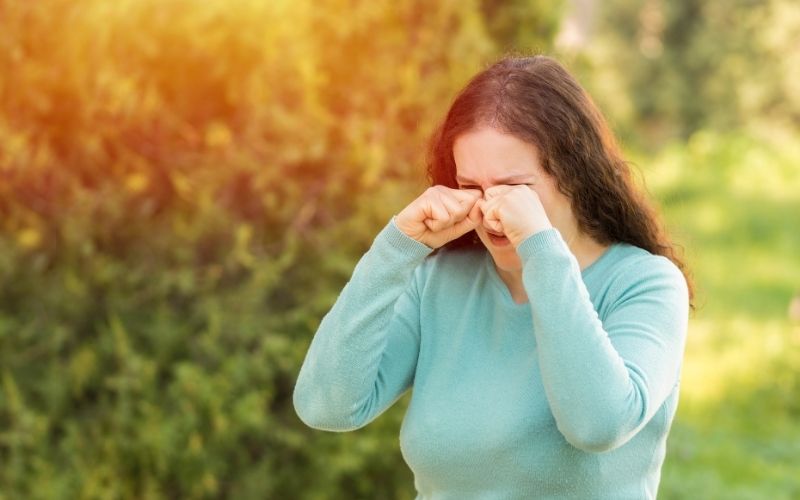Seasonal transitions can be tough for people who suffer from allergies!
For those who suffer from allergies, this time of year can be as brutal as it is a beautiful. Flowers are blooming, leaves are returning, and the grass is growing. As we know, this past winter in New England was a mild one. However, mild winters translate to tougher spring and summer seasons, whereas many elements that cause allergic reactions survived the warm winter.
At Lexington Eye Associates and Dedham Ophthalmic Consultants and surgeons, we highly recommend preventative action to avoid symptoms of eye allergies from worsening.
Eye allergies should be treated similarly as pain management. Anyone who has been prescribed pain medication to recover from surgery appreciates the impact that early prevention can have. Rather than playing “catch up”, those recovering from surgery can enjoy an easier recovery process. The same applies to eye allergies. Catching eye allergies sooner than later will immediately impact your chances for a more comfortable spring experience.
We stumbled across this informative article, courtesy of WebMD to offer some self-help and other useful information regarding eye allergies. See FULL ARTICLE here.
___________________________________________
Eye allergies, also known as ocular allergies or allergic conjunctivitis, affect one in five Americans.
Though the symptoms they cause can be annoying — not to mention unbecoming — they pose little threat to your eyesight other than temporary blurriness. But red, itchy, burning, and puffy eyes can be caused also by infections and other conditions that do threaten vision. So, it’s smart to see your doctor if eye symptoms don’t get better with self-help strategies or over-the-counter allergy remedies.
CALL our office now at 781-251-2222 to schedule your spring eye allergy check-up.
Like all allergies, eye allergies are caused by a glitch in the body’s immune system. The trouble starts when the conjunctiva (the mucous membrane that lines the eyelids and covers the whites of the eyes) comes into contact with something that, while actually harmless, is seen as a threat. In a mistaken attempt to fight off the threat, the immune system makes antibodies that cause your eyes to release histamine and other substances. That, in turn, makes eyes red, itchy, and watery. The most characteristic symptom of eye allergy is itching. Eye allergy symptoms can happen alone or along with nasal allergy symptoms.





